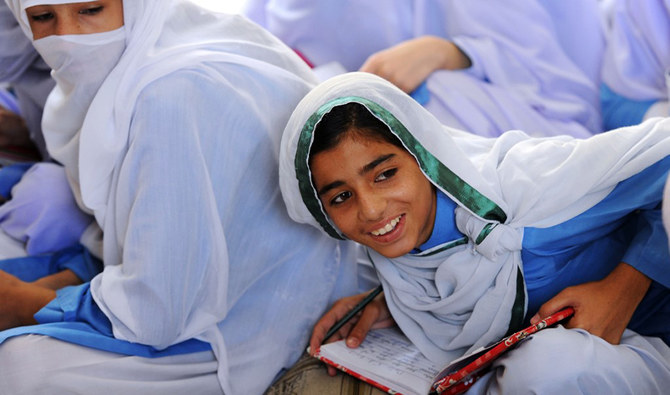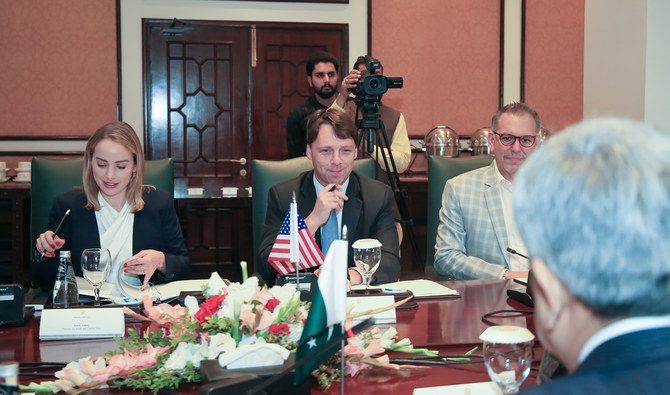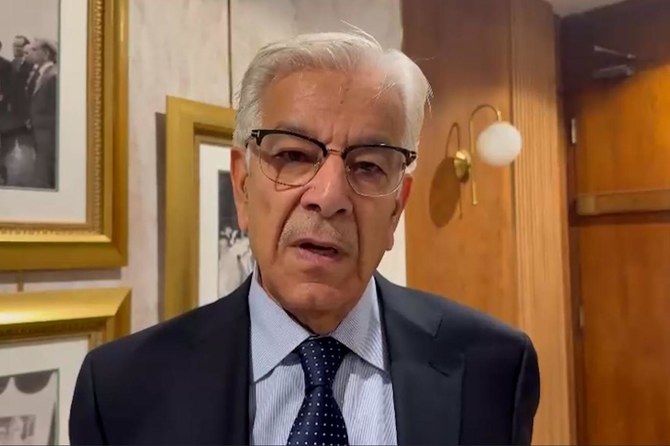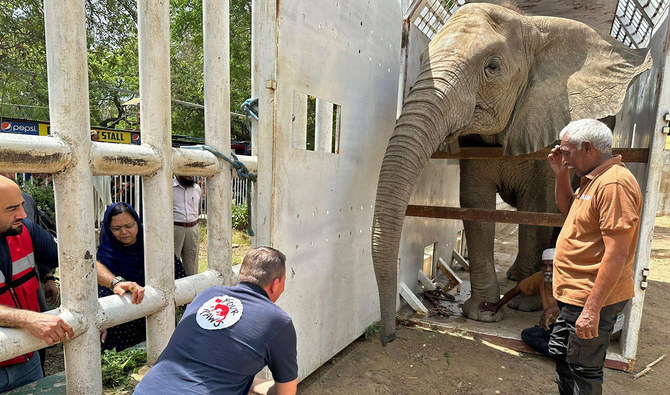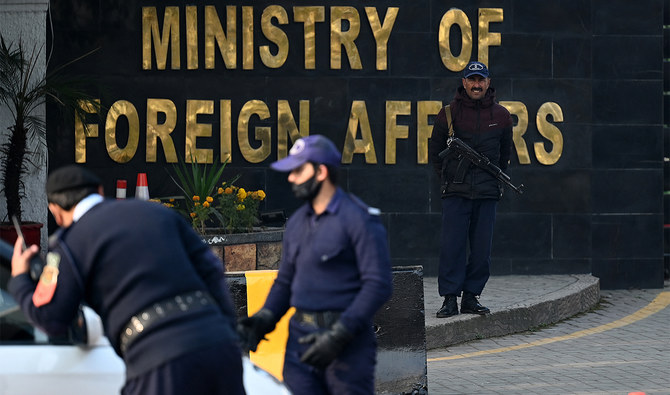PESHAWAR: Two tiny towns in Pishin district, where Balochistan province borders Afghanistan, have long ago made it a point of honor to send their boys and girls to school. Today, they have the highest literacy rate in the whole of Pakistan.
With a population of about 20,500 people, the twin towns of Balozai and Khanozai together have 48 educational institutions — primary and secondary schools, two colleges and a government-run polytechnic institute.
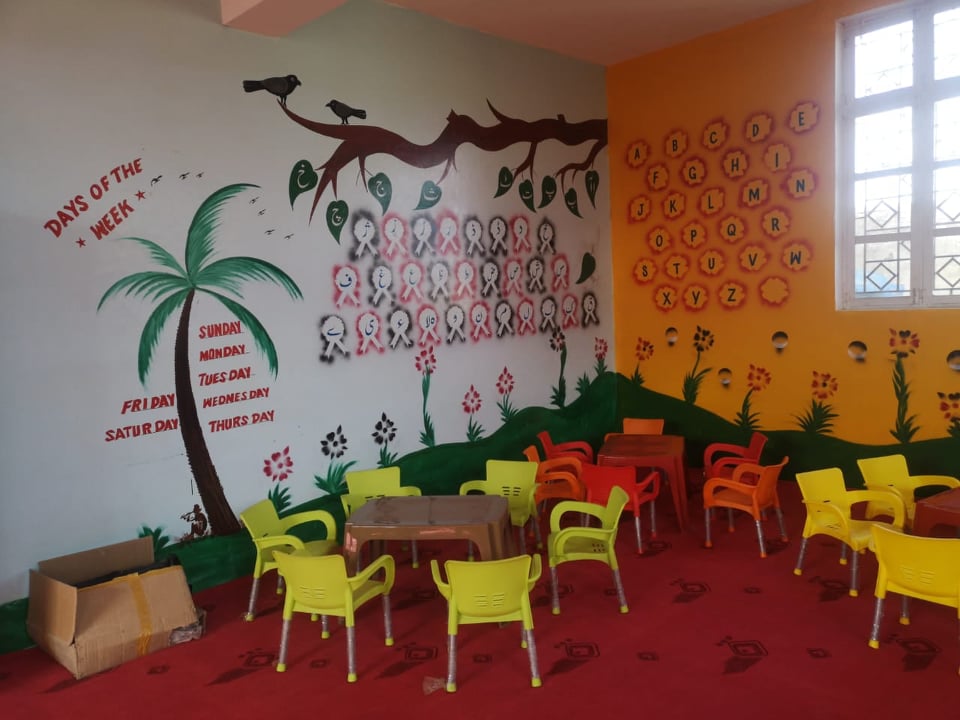
A classroom is decorated in the primary education section of Government Girls Middle School (GGMS) in Khanozai. (Photo courtesy: GGMS)
“In 2015-16, I conducted a survey on children aged five to 10 years, and found that 100 percent of them were enrolled in schools,” Khair-un-Nisa Panezai, principal of the Government Girls Middle School (GGMS) Khanozai, told Arab News.
She said the enrollment rate for girls was equal to that of boys, which she attributed to the region’s long-standing efforts to educate all children, initiated by Alama Abdul Ali Akhunzda, widely known as Sir Sayed Ahmad Khan of the Panezai tribe, who established the first school in 1905 — for both girls and boys.
According to district education officer Habib Alam Panezai, the literacy rate in Balozai and Khanozai is 98 percent, which is more than double their province’s average. In Balochistan, according to UNESCO’s January 2020 data, only 44 percent of people are literate.
For the whole of Pakistan, the literacy rate is currently 70 percent.
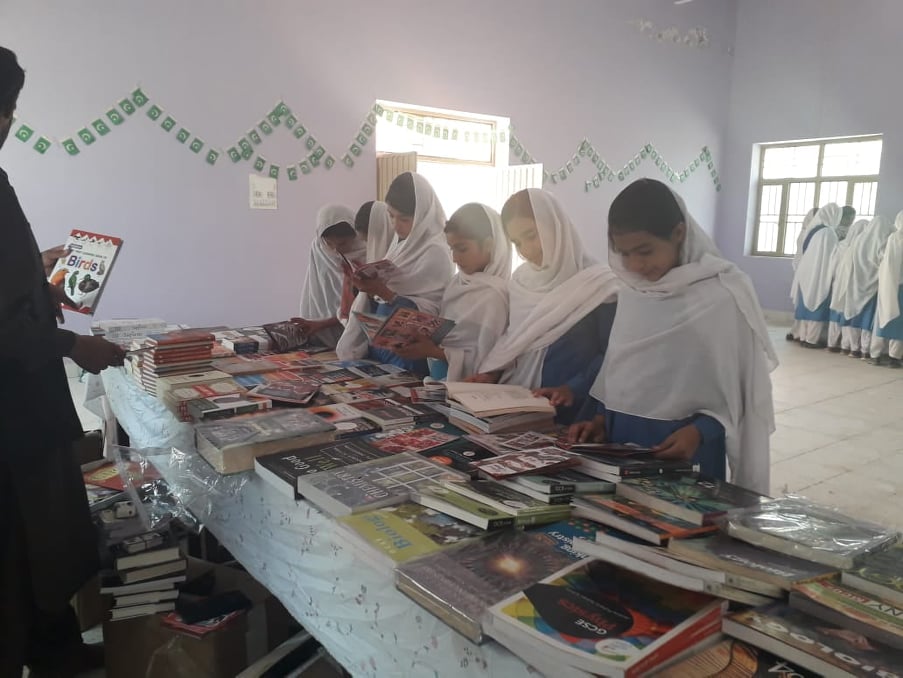
Students of Government Girls Middle School (GGMS) in Khanozai smile as they browse books at their school on Oct 14, 2019. (Photo courtesy: GGMS)
Muhammad Saleem Panezai, principal at the Government Boys High School Balozai, believes — based on a survey he conducted two years ago — that literacy in Balozai and Khanozai is even higher than 98 percent.
“During that survey, we selected some households of different living standards as a sample and we had got astonishing data and I can claim that the literacy rate is more than 98 percent,” he said.
Educationists give credit for this success to elders and religious leaders who, as Pishin district-based pedagogue Razia Panezai told Arab News, have been encouraging parents to send their children to school and forced the government to develop proper education infrastructure in the region.
“Our two Khanozai and Balozai tribes have a sort of competition to excel in education,” she said, “And today, even our female students study abroad in Malaysia and China.”
While Pakistan is struggling not only to send children to school but also to keep them there, Khanozai and Balozai have the lowest drop-out rate in the country, which stands at about only 2-3 percent, according to the district’s education department.
Abdul Ahad Kakar, chairman of the Ulasi Committee Balozai, said that in the 1930s local leaders established the Balozai Social Organization (BSO) which motivated people to educate their children and made it become every parent’s priority to have their offspring complete at least secondary education.
“In Khanozai and Balozai, our criteria for a literate person is one who has obtained a secondary school certificate or matriculation,” Kakar said.
While the two tiny towns have excelled at fulfilling their children’s right to learn, for the rest of Pakistan the picture remains bleak. UNICEF lists it as a country with the world’s second-highest number of out-of-school children, with an estimated 44 percent of kids aged between five and 16 excluded from education.



